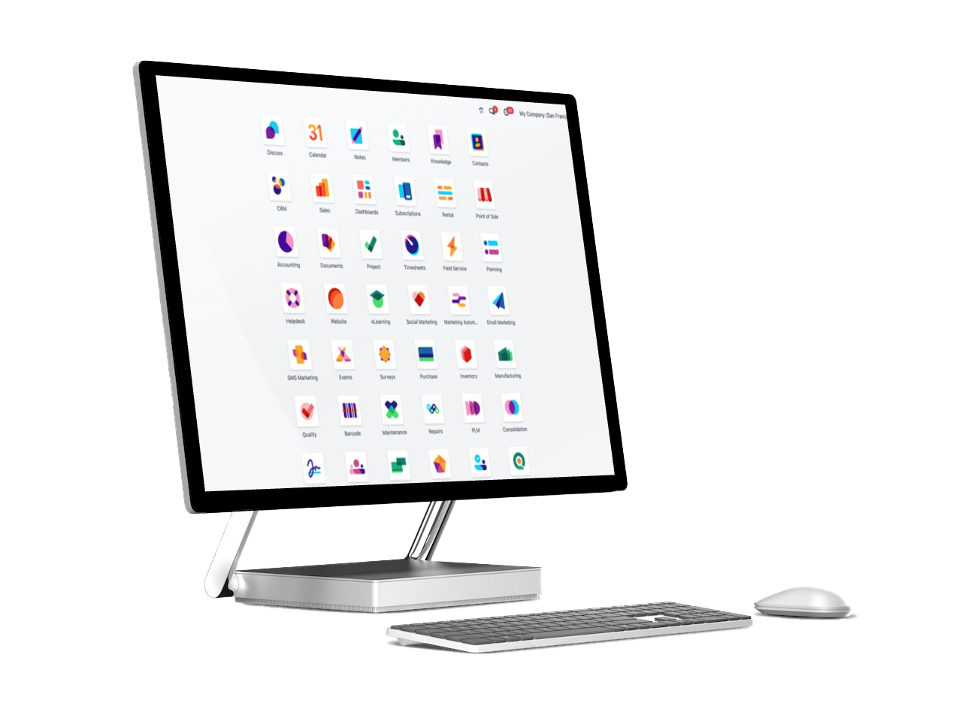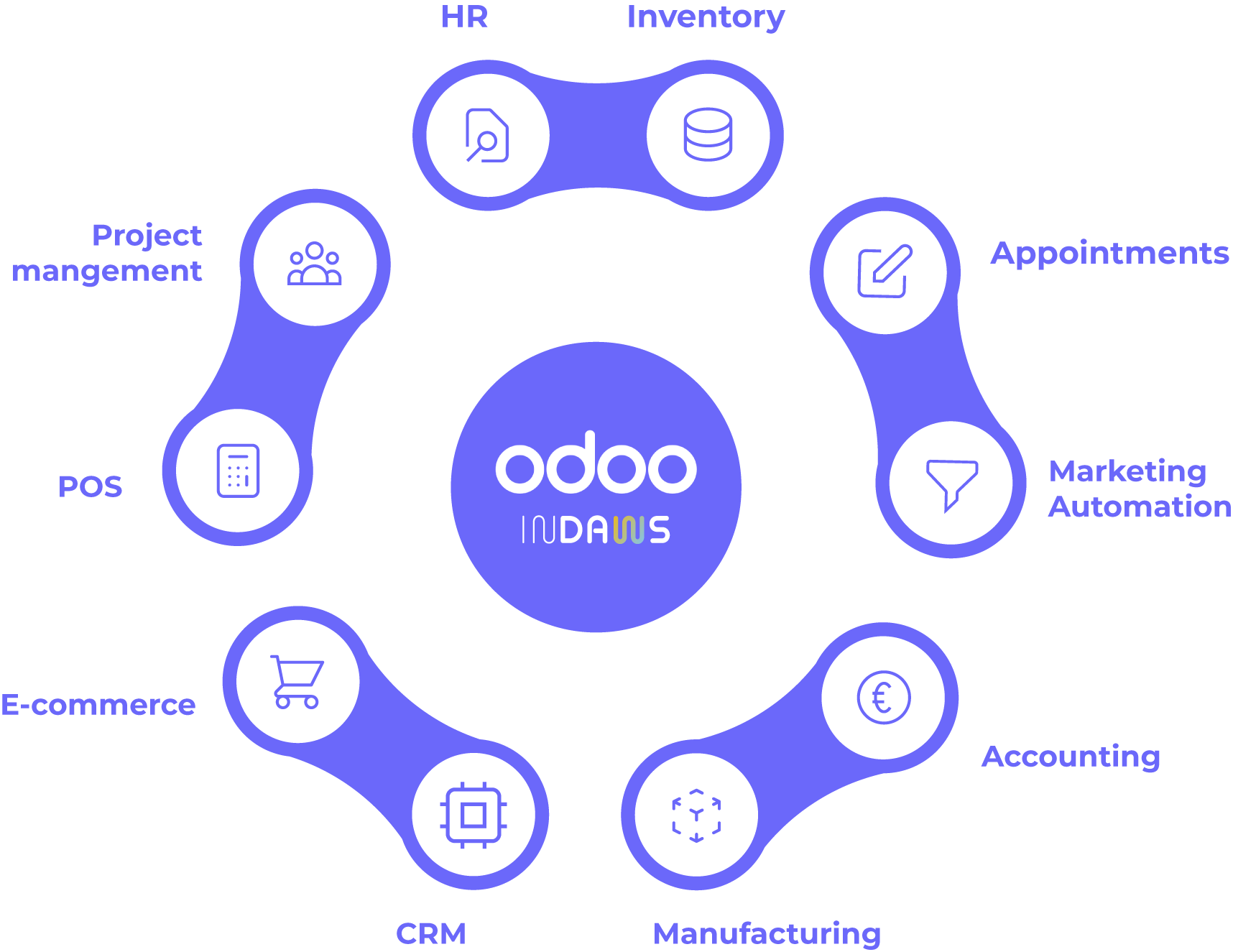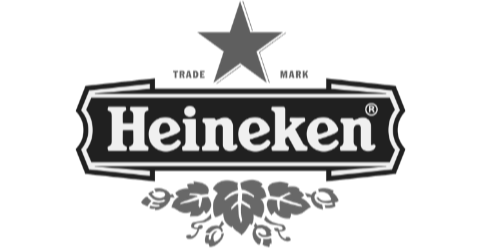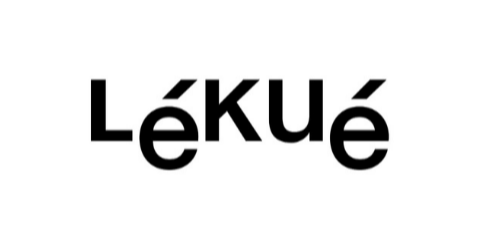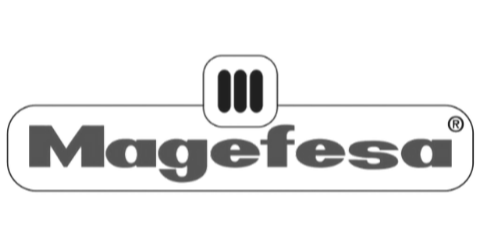Main new features Odoo 17
Redesigned User Interface
Improved usability and appearance:
Odoo 17 offers a completely redesigned user interface that redefines the business management experience, optimising user interaction with intuitive navigation and a cleaner, more modern design.
This redesign facilitates customisation and improves efficiency in day-to-day operations, reflecting Odoo's ongoing commitment to innovation and continuous improvement.
Advanced Search Options
Editable searches and customised filters:
With more powerful filters and enhanced search capabilities, users can perform deep, targeted searches within large volumes of data, making it easier to manage complex information and make strategic decisions with unprecedented accuracy.
These refined search tools demonstrate Odoo's commitment to accessibility and optimised user experience.
Mail Handling Improvements
Email aliases and bounced mail feedback:
With Odoo 17, we experienced a significant evolution in email management.
Its improved integration with other Odoo applications allows for smoother synchronisation and more centralised communication management, ensuring that customer interactions are more consistent and effective.
These enhancements reinforce Odoo's ability to serve as a one-stop solution for all business communication needs.
Kanban and List Facilities
Rapid creation of records and mass duplication:
Odoo version 17 brings major enhancements to Kanban and List views, two of the most popular tools for visual project and task management.
Users will benefit from a smoother experience with faster record creation, easier direct editing and new options for view customisation.
These facilities allow for more intuitive control and streamlined organisation of workloads, making it easier to adapt to agile methodologies and significantly improving team productivity.
Mixed Bar and Line Graphs
For trend analysis:
Enrich your data analysis with the addition of Mixed Bar and Line Charts, a more versatile and dynamic analytical tool.
This new feature allows users to combine different types of data into a single chart, making it easier to directly compare and track multiple indicators simultaneously.
With this functionality, Odoo reinforces its platform with advanced data visualisation capabilities, enabling a more comprehensive and detailed interpretation of business performance and market trends, crucial for informed and strategic decision making.
Email Template Management
Improvements in administration and use:
EstaThis new version of Odoo introduces a major improvement in email template management, a step forward in communication automation.
It allows users to design, customise and store email templates more easily, ensuring consistency and efficiency in mass communication.
The new intuitive interface for template creation makes email preparation faster and less error-prone, while the preview functionality ensures that messages are sent with the desired quality and accuracy..
Freeze Column Headers
Improved Navigation:
Odoo 17 marks a milestone in usability by introducing the freezing of column headers, a highly requested feature that improves navigation in long lists.
This new functionality keeps column headers visible while scrolling through data, which significantly simplifies cross-referencing and reading information in tables with a large number of rows.
This improved user interface is a clear reflection of Odoo's commitment to the user experience, providing a tool that not only increases productivity but also minimises data handling errors.
Integración con ChatGPT.
Mejoras en campos de texto con la potencia de la Inteligencia Artificial:
Rompe barreras innovando con la integración de ChatGPT, ofreciendo una poderosa herramienta de inteligencia artificial que transforma la interacción con el sistema ERP.
Esta integración permite a los usuarios realizar consultas complejas, obtener resúmenes analíticos y automatizar respuestas en tareas de atención al cliente, todo mediante lenguaje natural.
La sinergia entre Odoo y ChatGPT abre nuevas dimensiones de eficiencia operativa y personalización, permitiendo a las empresas aprovechar al máximo la tecnología AI para optimizar sus procesos de negocio y mejorar la experiencia del usuario, marcando un antes y un después en la gestión empresarial inteligente.
Electronic Invoicing
Implementation of e-Invoice to generate and sign electronic invoices:
Odoo introduces significant improvements in electronic invoicing with the new version of Odoo, extending its functionality to offer a more robust system adapted to global regulations.
This upgrade makes it easier to generate, sign and manage electronic invoices directly from the platform, ensuring compliance with the legal standards of different countries.
The automation of the invoicing process not only reduces the time and effort required but also minimises errors, improving accuracy and efficiency.
With these enhancements, Odoo 17 reinforces its position as a comprehensive business management solution, enabling companies to keep up with the latest fiscal and digital requirements.
TicketBAI
TicketBAI e-invoicing integration
Odoo version 17 introduces a major new feature for users in specific regions with the integration of TicketBAI, an e-invoicing system designed to promote the use of telematic means in transactions and ensure tax compliance.
This integration automatically facilitates the generation, signing and sending of electronic invoices in accordance with TicketBAI requirements, significantly simplifying the compliance process for businesses in areas where this system is mandatory.
The inclusion of TicketBAI in Odoo 17 not only improves efficiency and security in invoice management, but also ensures greater transparency and traceability in business operations, reinforcing Odoo's commitment to adapting to local regulations and supporting its users in seamless business management.
Company ID printout
Possibility to print the ID on invoices, useful for customers not subject to VAT:
Odoo 17 introduces a key functionality for invoice personalisation: the possibility of printing the ID on invoices, especially useful for customers who are not subject to VAT.
This feature responds to the need for adaptability in the issuance of tax documents, allowing companies to adjust their invoices to the specific requirements of international customers or those exempt from VAT.
Export and Import
Functions for exporting VAT books and importing XML invoices from e-Invoice:
This update significantly expands tax management capabilities with new features for exporting VAT ledgers and importing invoices in XML format from e-Invoice.
These enhancements facilitate interoperability with external accounting and tax compliance systems, allowing businesses to manage their tax obligations more efficiently and accurately.
The ability to export VAT books streamlines reporting and tax auditing, while the e-Invoice XML invoice import simplifies the integration of electronic transactions into Odoo's accounting workflow.
Exempt Taxes and SII
Update of exempt taxes and improved compatibility with SII reports:
Odoo 17 introduces key improvements in tax management with the inclusion of advanced functionalities for handling Exempt Taxes and integration with the Immediate Information System (SII).
This update allows companies to easily configure tax-exempt products and services, improving accuracy in tax calculation and tax reporting.
Integration with the SII, on the other hand, automates the transmission of invoicing records to the Inland Revenue in real time, a requirement for many companies in jurisdictions where the SII is mandatory..

